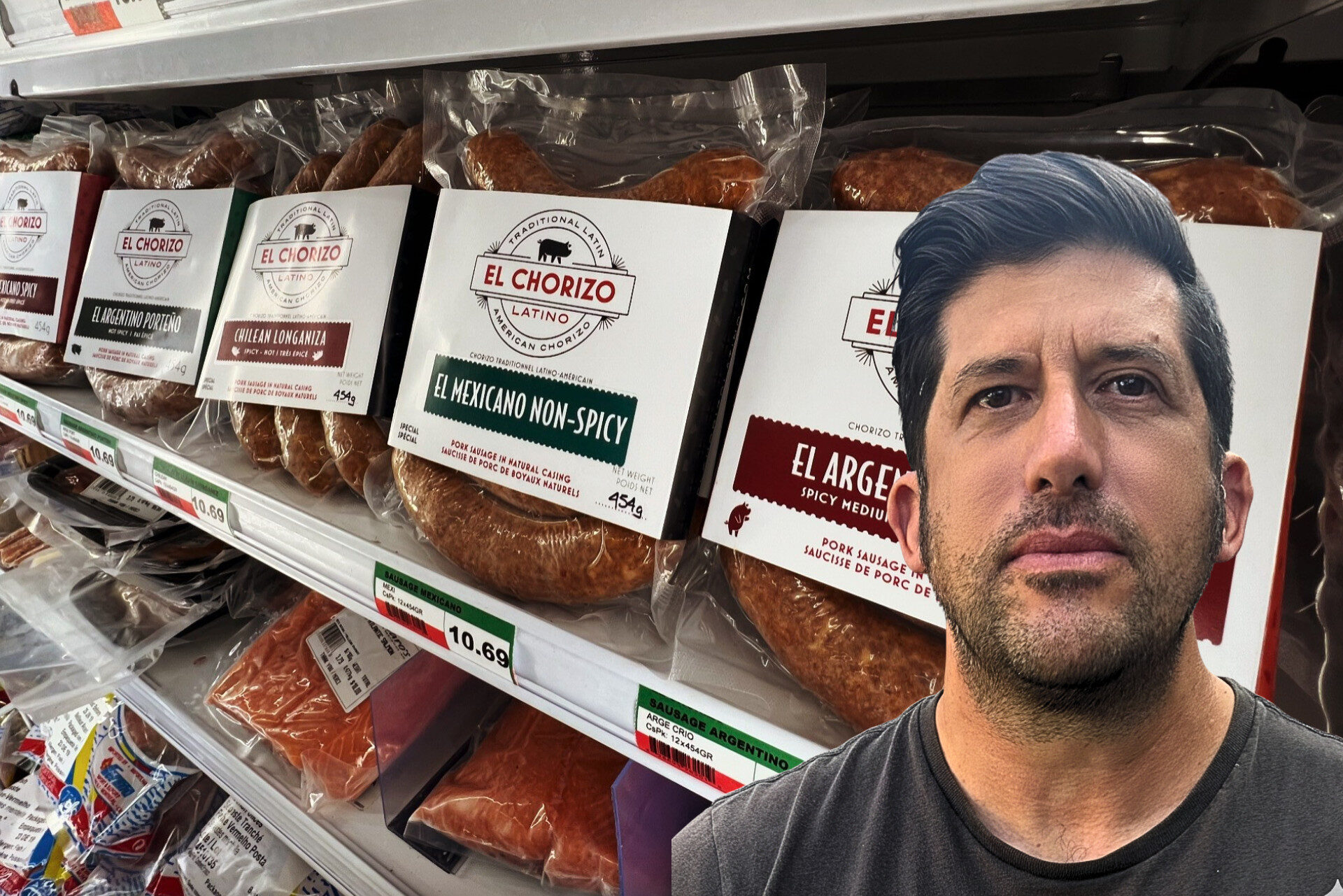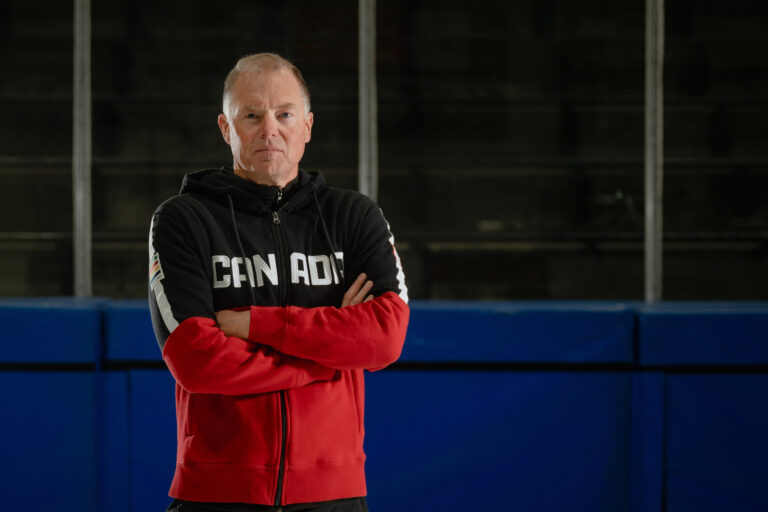Written by Evelyn Mytka, Contributing Writer
John Martin turned a pandemic pastime into two thriving Edmonton food brands: El Chorizo Latino, specializing in Latin American chorizo, and San Martin, focused on charcuterie and salamis. We sat down with John to learn how he built a business that now supplies major grocery chains, restaurants, and markets across Alberta.
“During COVID I wanted to reconnect with my Latin American roots and started making charcuterie and chorizos.”
Evelyn: What inspired you to start El Chorizo Latino?
John: My family’s roots are steeped in Latin American cooking. My dad grew up in Argentina, my mom was born and raised there, and my brother and I spent part of our childhood in Mexico. During COVID I took a step back and wanted to reconnect with those roots. I started making charcuterie and Latin American sausages at home. It began as a COVID experiment, it went wild, really, and people started buying them. It went from a side project to a part-time business, now to a full-time business.
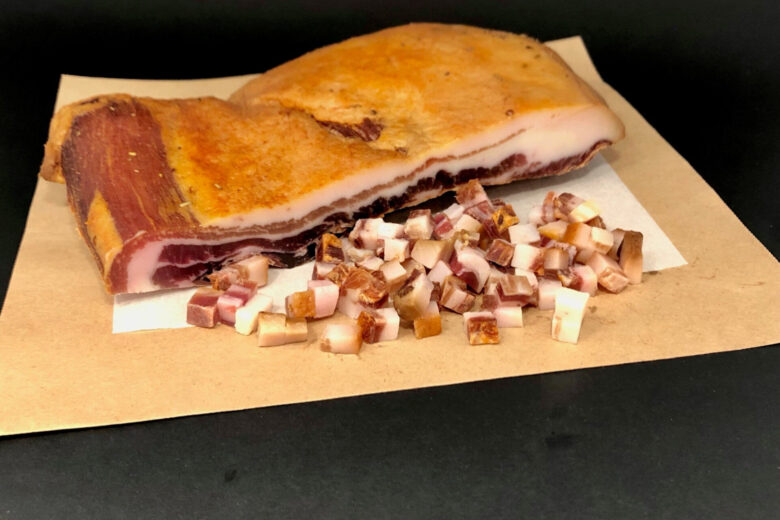
“This November marks three years in our 3,000-square-foot commercial space.”
Evelyn: How did you make the leap from home kitchen to commercial facility?
John: At first, I was selling from my own kitchen, but that quickly became too small. With my wife’s support I moved into a 3,000-square-foot space with walk-in coolers and a charcuterie chamber. We now employ four full-time staff, including a University of Alberta food scientist helping us work toward federal Safe Food for Canadians certification so we can continue to grow.
Evelyn: Many food entrepreneurs wonder how to scale from local markets to bigger outlets. What steps helped you expand your distribution?
John: It’s definitely a process. We started with farmers markets and built a reputation there first. From there, I reached out directly to grocery buyers and restaurant owners — sometimes literally knocking on doors with samples in hand. Word of mouth helped, but we also had to be proactive, showing people who we were and letting them taste the product. That’s how we ended up in places like Blush Lane, the Italian Centre, H&W Produce, and SPUD.ca, as well as supplying restaurants and even doing white-label production for other food businesses.
“There’s no real blueprint to getting started.”
Evelyn: What challenges have you faced as you’ve grown?
John: There’s no perfect blueprint for starting a food business. Permitting can vary block by block. Cash flow is critical. For example. I saw a great deal on two cold smokers for about $5,000, a fraction of their usual price, and it was tempting. But I held off, so we’d still have a buffer for rent and emergencies. Not long after, our walk-in cooler broke and the repair cost was about the same amount. If I’d bought those smokers, we would have been in real trouble.
Understanding costs is another big one. Many entrepreneurs don’t know their product cost. Do the pro formas, not just for a loan but to really know your numbers.
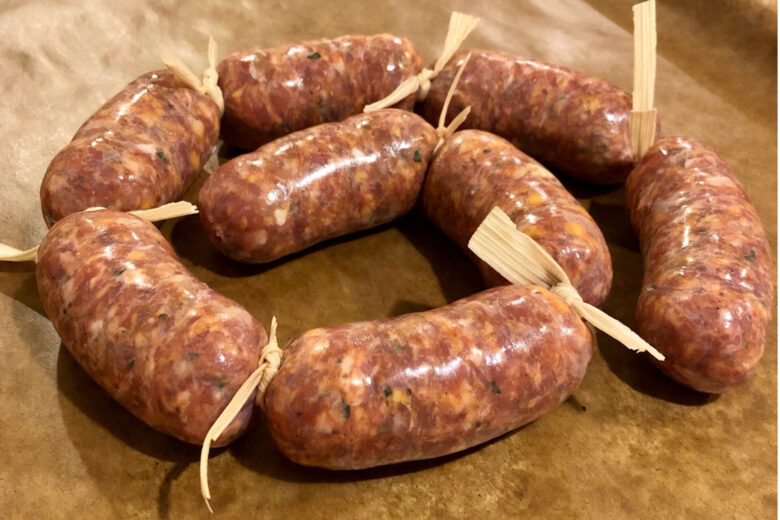
“Business Link helped us find a path where we could register the new brand under our existing company, saving thousands in legal and accounting fees.”
Evelyn: Support can make a big difference for entrepreneurs. What role has Business Link played in your journey?
John: Business Link has been a big help. When we wanted to introduce our second brand, San Martin, we thought we might need to create a whole new corporation. That would have meant legal fees, extra accounting, and yearly corporate filings — thousands of dollars every year.
I connected with a Business Link advisor who walked us through the options. They showed us how to register San Martin as a branch under our existing corporation instead of starting from scratch. It sounds like a small change, but it saved us at least five or six thousand dollars in legal and accounting costs.
Beyond that, they’ve been a reliable sounding board. When you talk to other entrepreneurs, you get a lot of conflicting advice that may not fit your situation. Business Link helped us cut through the noise and find answers specific to our business and the food industry in Alberta.
“Don’t rush. Take time to build your foundation before you scale.”
Evelyn: Knowing what you know now after 5 years, what advice would you give someone starting out?
John: Don’t rush. When opportunities start coming, it’s easy to say yes to everything, but that can stretch you too thin. Take the time to understand your costs and build a solid foundation before scaling. Early on, I took on too many farmers markets instead of focusing on refining the brand and processes. Knowing your true product costs and your ideal customer makes a huge difference, you can price properly and avoid chasing every opportunity that comes your way.
“We’re growing in as many ways as possible, but everything is very vertically integrated.”
Evelyn: What’s next for El Chorizo Latino and San Martin?
John: We joke that we’re like an octopus with many arms. We’re pushing into larger grocery chains and more restaurant wholesale. We’re also planning a small take-out café to showcase our products and teach customers how to use them.
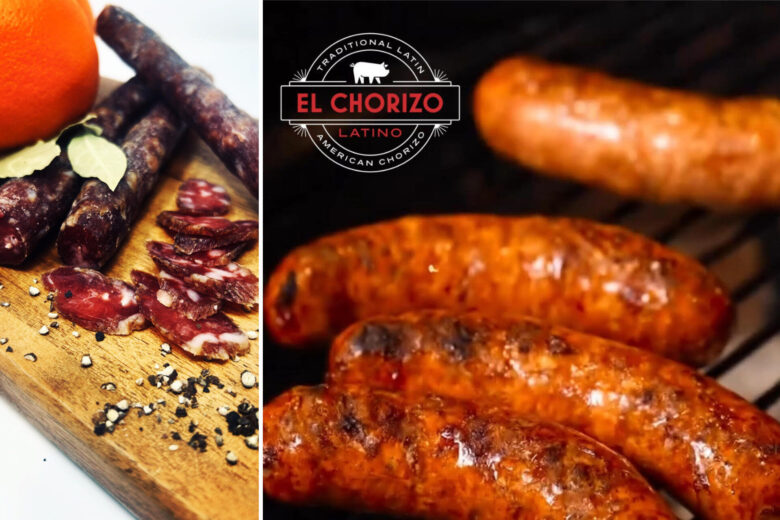
Ready to grow your own food business? Whether you’re exploring an idea or scaling up like John, Business Link’s advisors can help you navigate regulations, explore funding, and save money with smart strategies. Book a free consultation with a Business Link Strategist to get personalized guidance for your next big step.
Website: El Chorizo Latino
Instagram: @elchorizolatino
Facebook: El Chorizo Latino
